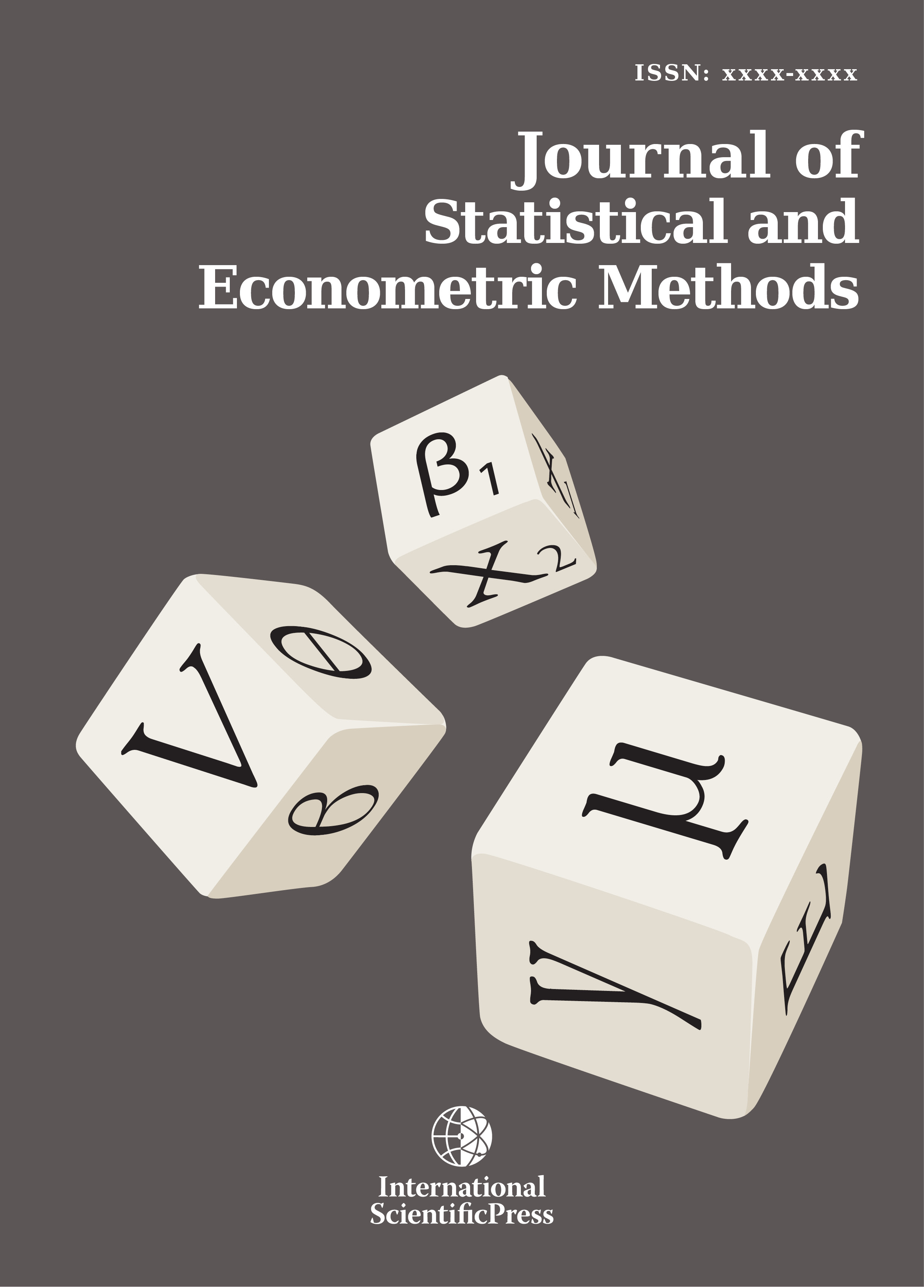Journal of Statistical and Econometric Methods
A Dynamic Econometric Model for Inflationary Inertia In Brazil
-
 [ Download ]
[ Download ]
- Times downloaded: 10493
-
Abstract
In this article we model the inflationary inertia in Brazil, as measured by the monthly series of IPCA (Aggregate Consumer Prices Index), for the period of inflationary transition from August of 1994 until January of 2003. The concept of inflationary inertia is defined as the value of the first order autoregressive parameter for the IPCA, in a dynamic econometric model with time varying parameters. This model is formulated as a state space model with a GARCH component, to control the presence of conditional eteroscedasticity. The results show that this model can explain the behavior of inflation in this period, capturing the periods of inflationary acceleration, and surpassing the benchmark linear model in all the considered criteria of forecast. The model shows that the increasing periods of inflationary inertia are on the crisis moments, and we can identify two periods associated with this phenomenon, being the first moment after the exit of the target zone regime in 1999 and the second associated to the presidential election in 2002. The same analysis is realized with a decomposition of IPCA in free and monitored components showing that inflationary inertia can be identified with the free component of prices in Brazil.
